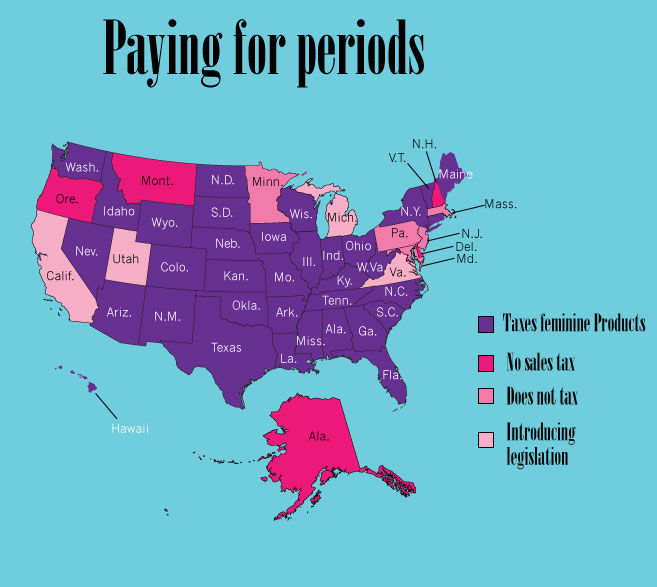Illinois’ “tampon tax” causes debate
February 3, 2016
Illinois is one of 40 states in which tax laws do not define feminine products as necessities, according to The New York Times. This means tampons and feminine pads are not exempt from taxation like medications are.
“I have no idea why states would tax these as luxury items,” President Barack Obama said during a Jan. 16 interview with Ingrid Nilsen, a popular YouTube personality. “I suspect it’s because men were making the laws when those taxes were passed.”
Obama said women in those 40 states should do their best to remove what has been nicknamed the “tampon tax.”
Advertisement
This year, California, Virginia, Utah and Michigan introduced legislation to eliminate this tax, according to a Jan. 28 article by Time Magazine.
Meghann Pytka, assistant director of SIU’s women, gender and sexuality studies department, said she is excited about people discussing the issue.
“The people who directed these law codes, it would seem, were not people who dealt with a monthly menstrual cycle and had a deep empathetic understanding about how a tampon or maxi pad would not be a luxury item,” Pytka said.
However, Illinois State Rep. David Harris, R-Mount Prospect, said he has not heard any discussion of a bill to end the “tampon tax” in the state.
Harris said the question that must be considered is whether or not feminine products qualify as medicine.
”I’m not ready to say what is or what isn’t a medicine or a medical device,” Harris said. “You could define condoms as a medical product as well, and men are the only people who use condoms. That’s the bigger issue. It’s not meant to be discriminatory to whichever [gender] is paying the tax.”
Pytka said it’s not about the tax. Instead, she said it’s about who the state envisions as its ideal citizens, which points to a broader issue.
Advertisement*
“We have a legal structure, a social realm that fundamentally was not built for a majority of folks that live in that society,” Pytka said, naming women, African Americans, gays and the poor among those groups.
Natasha Zaretsky, an associate history professor, said challenging the tax continues the feminist revolution of the 1970s. Despite this, she said the gender wage gap and the ratio of men to women in STEM careers are examples of areas that still need change.
She said this tax is a way to encourage discussion about women’s sexuality and health issues by de-stigmatizing words such as “tampons” and “menstruation.”
Zaretsky said there are gender biases that still have not been appropriately scrutinized. Still, she said some positive changes are occurring, such as a greater focus on sexual violence on college campuses and the Planned Parenthood debate.
“Fundamental questions are being asked about women’s bodies and women’s reproductive rights,” Zaretsky said. “It is actually a really interesting moment in feminist politics more broadly where women’s issues are coming back to the floor.”
Anna Spoerre can be reached at [email protected] or 618-536-3325.
Advertisement









